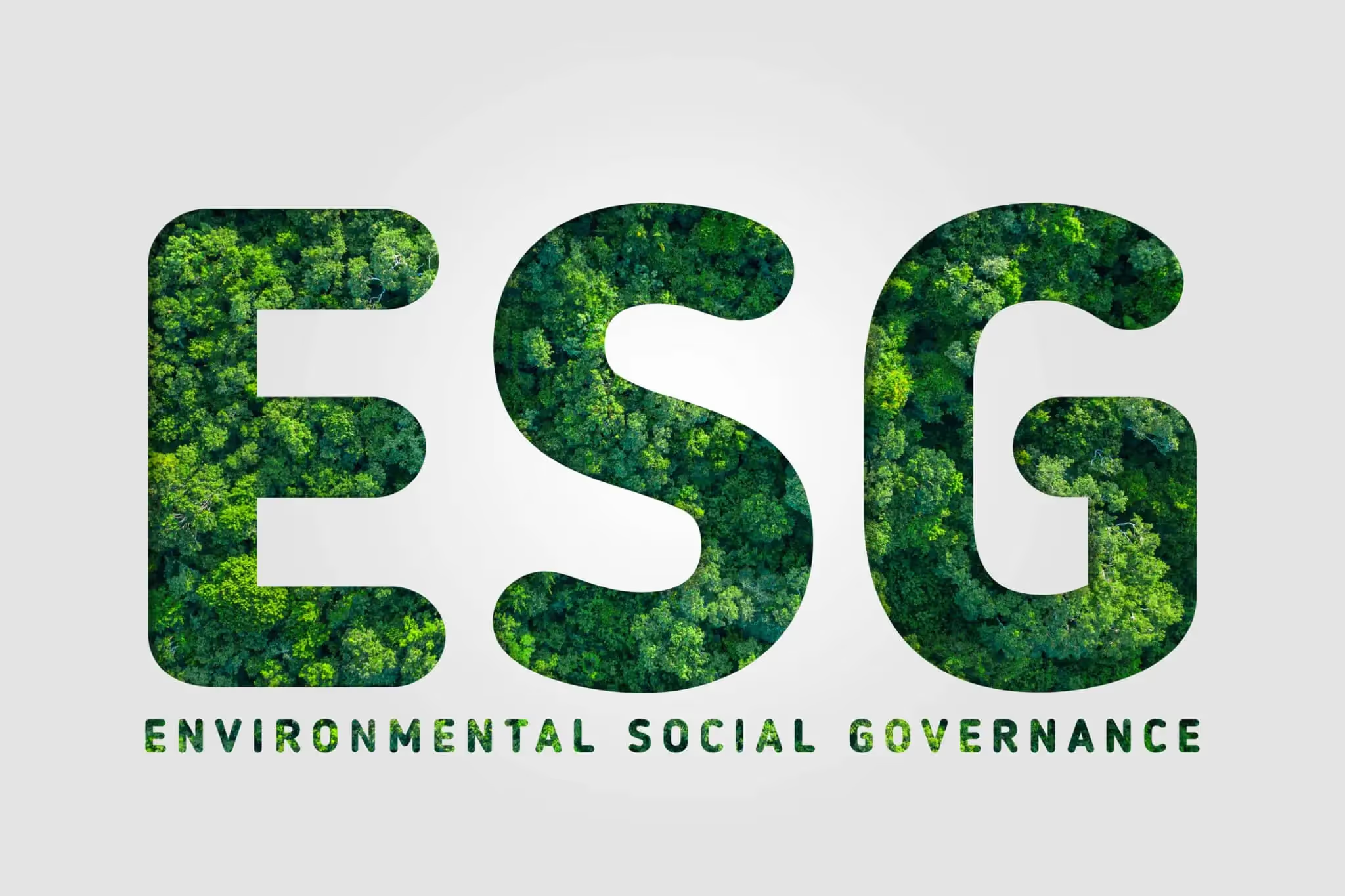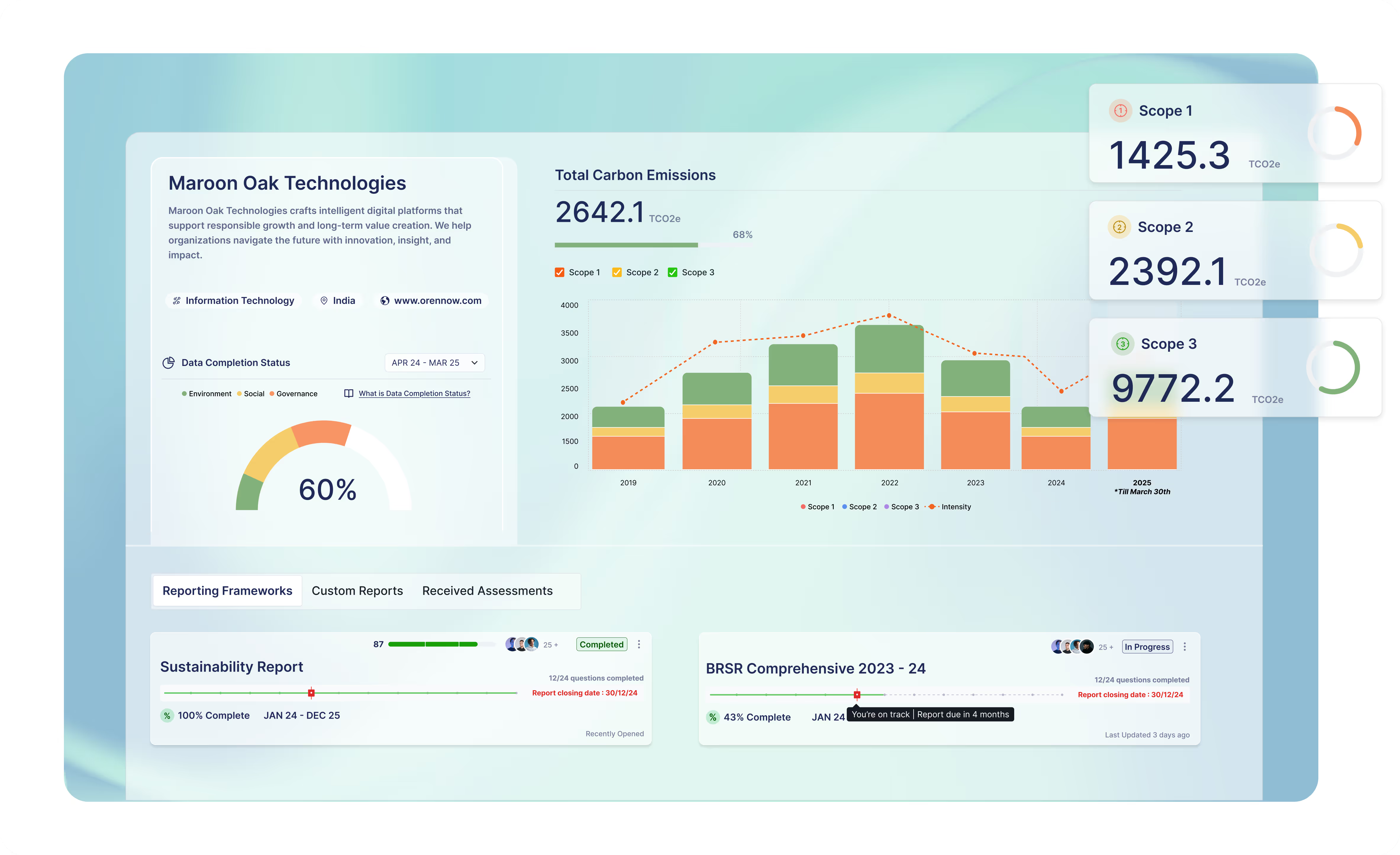Sustainability Practices in Business to Create Lasting Value

What is a Sustainable Business?
A sustainable business goes beyond profit to create a positive impact on people and the planet. It integrates sustainability practices in business operations, balancing growth with care for the environment and society. These businesses adopt responsible sourcing, promote fair labour, and work towards carbon neutrality and waste reduction. Their business sustainability strategies are often aligned with the UN Sustainable Development Goals (SDGs). They address issues like inequality and climate change. It helps them to reduce risks and future-proof their operations.
Precisely, sustainable businesses view success as a balance between
- Economic performance
- Social responsibility
- Environmental stewardship
Why is Sustainability in Business Important?
Sustainability in business is no longer optional. It is a strategic necessity. With 80% of global carbon dioxide emissions produced by just 57 companies, organisations play a central role in tackling climate change. Responsible approaches assist in bringing enough engagement and trust. The facts:
- Around 80% of consumers consider sustainability important when they choose products
- Around 71% of employees prefer purposeful employers
Investors are preferring ESG criteria, and thus, sustainability has become an important factor if businesses are looking to attract capital.
So, if companies integrate sustainable business practices, they can:
- Boost operational efficiency while reducing environmental impact
- Unlock growth opportunities
- Build resilience amid resource scarcity, supply chain disruptions, and climate risks
- Meet regulatory requirements with sustainable operations
The Benefits of Sustainable Business Practices
Implementing conscious business practices brings visible outcomes and long-term benefits.
- Enhanced brand image: 55% of consumers value environmental responsibility. So, showcasing sustainability builds trust.
- Attract and retain talent: Business sustainability initiatives and practices create motivated, loyal workforces.
- Operational efficiency and resilience: Business strategies for sustainable development lower costs and optimise resources. They prepare companies for disruptions.
- Investor appeal: Strong ESG performance attracts investors and funding opportunities.
- Regulatory readiness: Early adoption of responsible practices ensures compliance with regulations and SDGs.
- Long-term impact: Sustainable operations drive social, environmental, and business value.
Examples of Sustainable Business Practices
Sustainable business practices are the tangible actions companies take to reduce environmental impact, foster social responsibility, and implement effective governance. Organisations use responsible practices to create a safe workplace. They can very smartly reduce operational costs through good practices. Some basic examples of responsible business practices are as follows:
- Energy efficiency: Use LED lights, motion sensors, power strips, and heat-blocking films to cut energy use.
- Water conservation: Install low-flow faucets, WaterSense toilets and rain-sensing irrigation systems to optimise water use.
- Waste reduction: Expand recycling, implement zero-waste practices and use remanufactured supplies.
- Sustainable sourcing: Choose recycled paper, eco-friendly paints and green cleaning products.
- Remote work and flexible policies: Encourage work-from-home days and flexible policies to reduce commuting and energy use.
- Renewable energy adoption: Invest in solar, wind, or geothermal systems or purchase Renewable Energy Certificates (RECs) to power operations sustainably.
- Responsible technology use: Recycle electronics and switch to green web hosting.
These initiatives demonstrate how business sustainability strategies can be implemented in practical, measurable ways that align with business strategies for sustainable development.
Challenges with Sustainability in Business
Sustainability practices in business are essential in this age, and each company needs to abide by them. Yet, some companies tend to face several obstacles when they try their hand at integrating them into their business operations. At the start, business sustainability initiatives can feel complex and expensive. They sometimes come out as strategically challenging, too. The common challenges that companies face are as follows:
- High upfront investment: The initial capital is higher when a company implements sustainable solutions.
- Lack of strategy and framework: Many organisations struggle to define a clear business sustainability plan or understand how to prioritise actions for maximum impact.
- Changing market expectations: Balancing customer demand for sustainable products with business priorities can be tricky, as some stakeholders may not yet value long-term sustainability.
- Collaboration and ecosystem gaps: When an organisation has to create business strategies for sustainability, many times it will require partnerships. These partnerships with innovation leaders, suppliers, and stakeholders are sometimes hard to establish.
- Long-term vs. short-term focus: Sustainability goals, such as carbon neutrality by 2050, may not drive immediate action. This happens when an organisation's focus is on shorter-term operational priorities.
Addressing these challenges requires forward-thinking business sustainability strategies, careful investment planning, and aligning business sustainability initiatives with measurable outcomes.
The Future of Sustainability in Business
As businesses strive to lead in sustainability practices in business, the frontier is shifting fast. Leaders are leveraging business sustainability strategies that harness data, AI, and blockchain to manage environmental risk, optimise resources, and build more resilient supply chains.
What’s ahead?
- Real‑time monitoring of emissions and resource use through AI-driven systems.
- Transparent, traceable value chains powered by blockchain and digital twins.
- Embedded sustainability for corporations becomes a competitive edge, not just a compliance item.
Therefore, sustainability in business will move from being a “nice to have” to a core driver of strategy and survival in the marketplace.
Conclusion
Progressive organisations focus on environmental sustainability in business. They go through the examples of socially responsible business practices. Whether it’s Oren planning a business sustainability plan or a startup exploring sustainable business strategy examples, the path is clear: align profit with purpose. The companies that embrace business sustainability initiatives today are the ones that will thrive tomorrow, proving that responsibility and growth can happily coexist.
Frequently Asked Questions
What is meant by sustainable practice?
A sustainable practice is an action or policy designed to reduce negative social, environmental, or economic impacts while supporting long-term growth. Examples include energy efficiency, waste reduction, ethical sourcing, and community-focused initiatives.
What is sustainable practice in business?
In business, sustainable practices integrate environmental, social, and governance considerations into operations. This includes business sustainability strategies, responsible business examples, and initiatives that balance profitability with positive societal impact.
Why is SDG 7 so important?
SDG 7 focuses on affordable, reliable, and sustainable energy. Access to clean energy powers business strategies for sustainable development, lowers emissions, and ensures businesses can operate responsibly while supporting global environmental goals.
What is the most impactful sustainable practice?
The most impactful practice often depends on context, but reducing carbon emissions and energy use through examples of sustainable business practices and environmental sustainability business examples has broad benefits for the planet, society, and corporate resilience.





